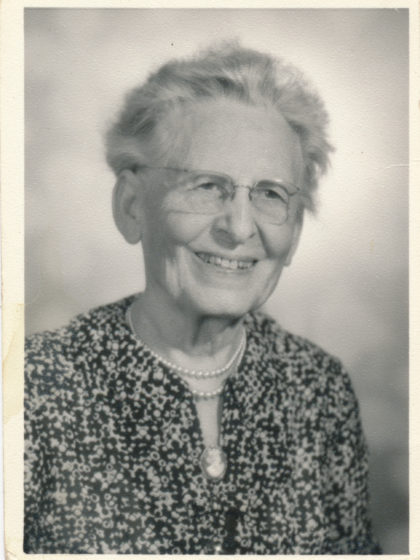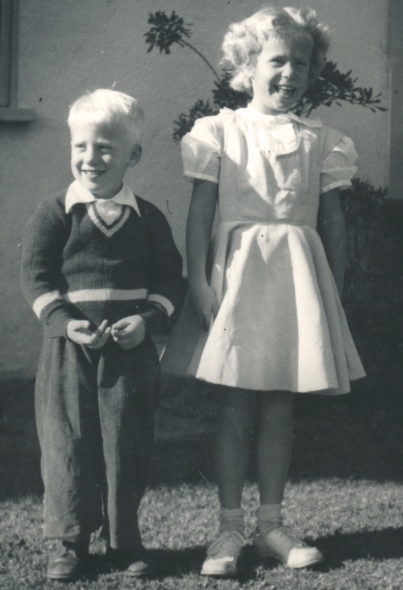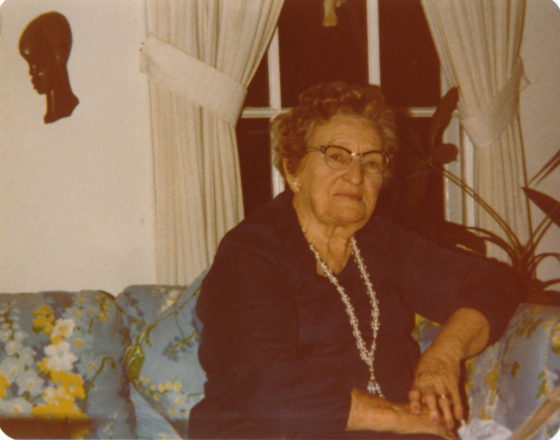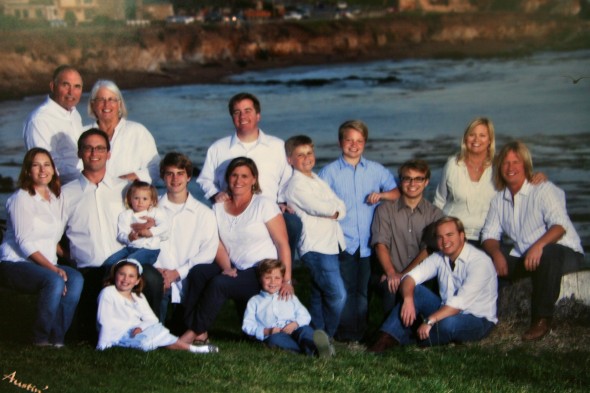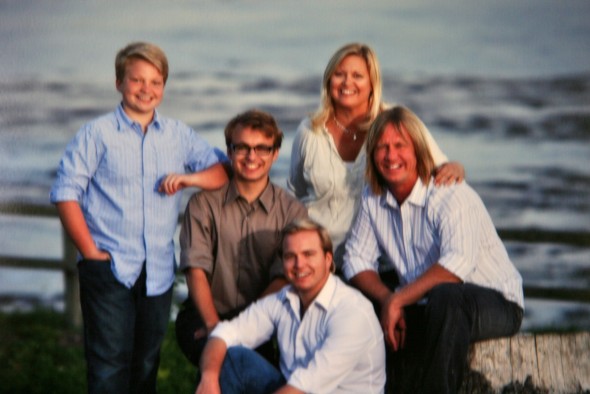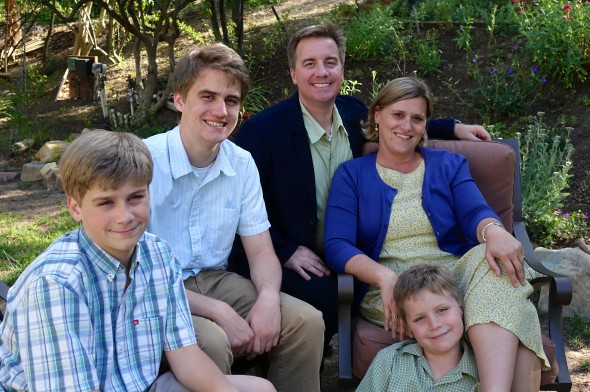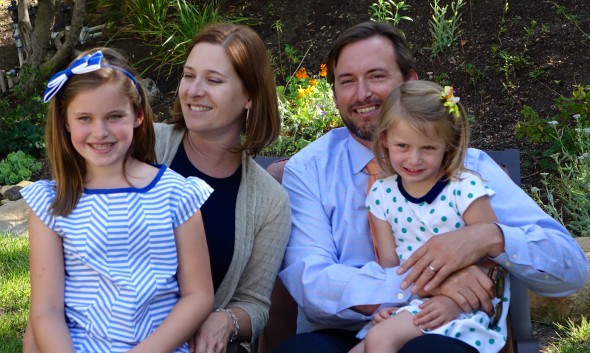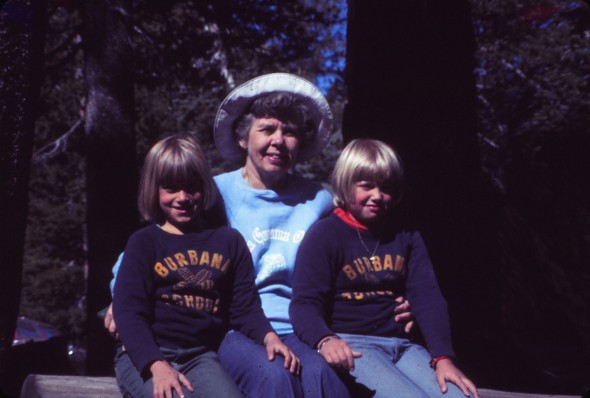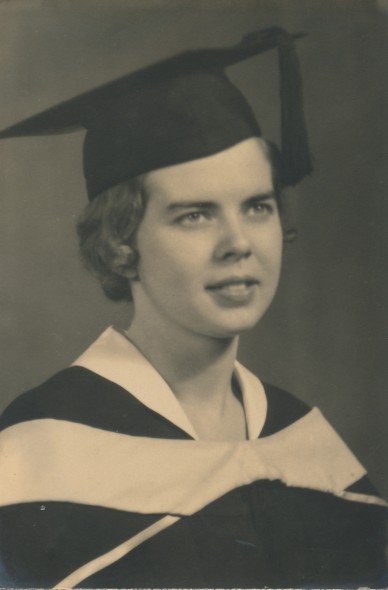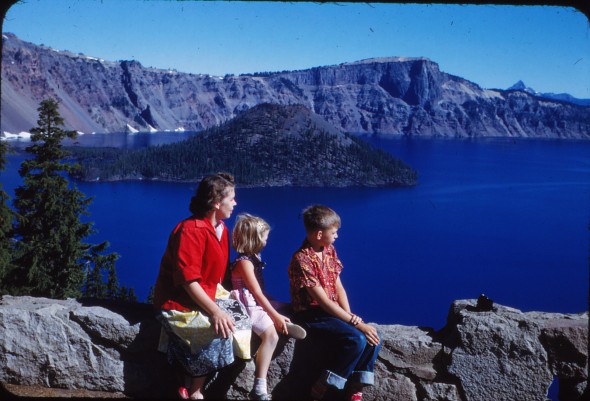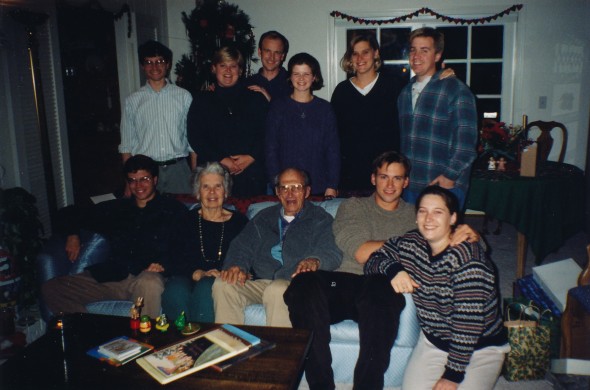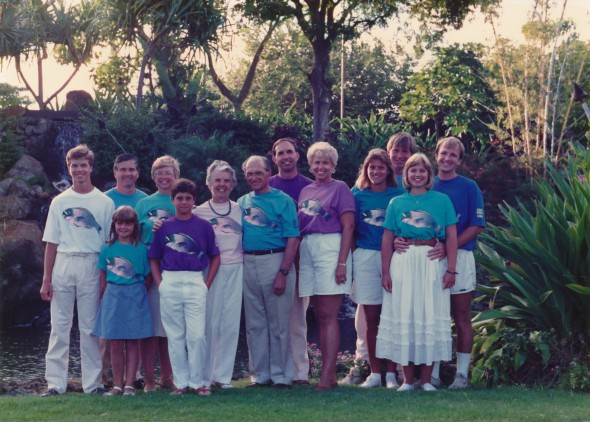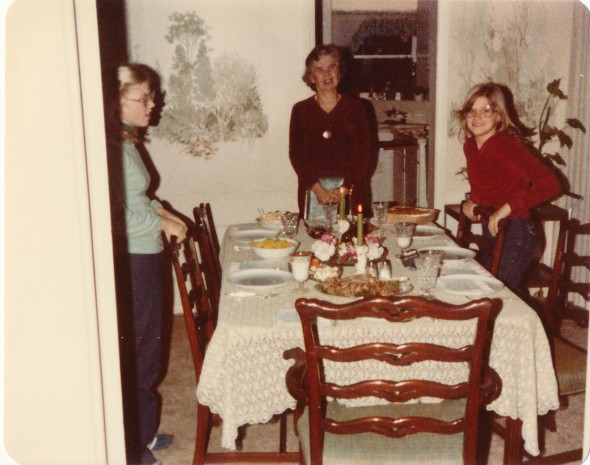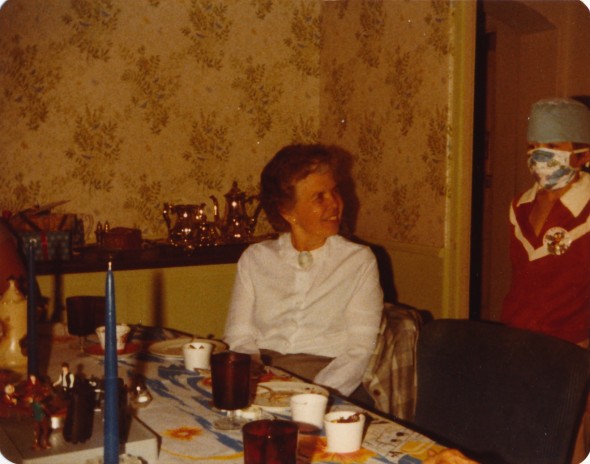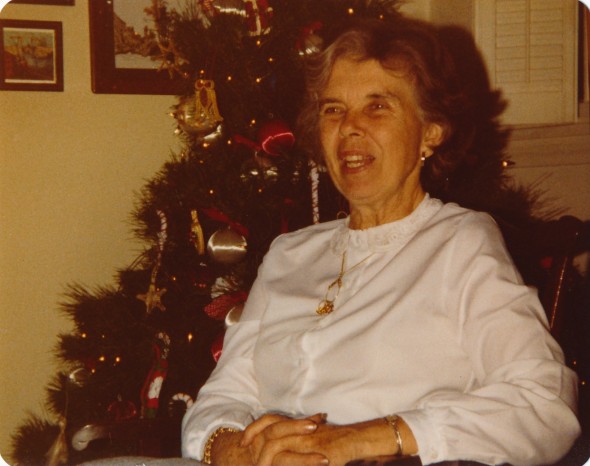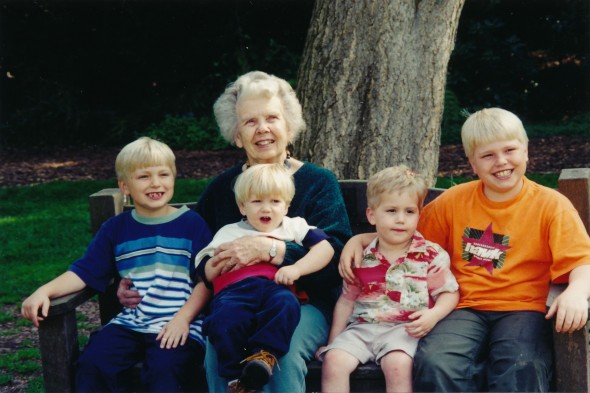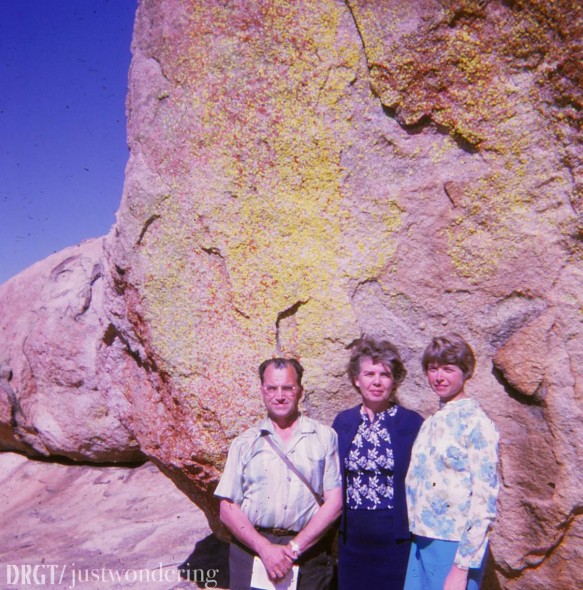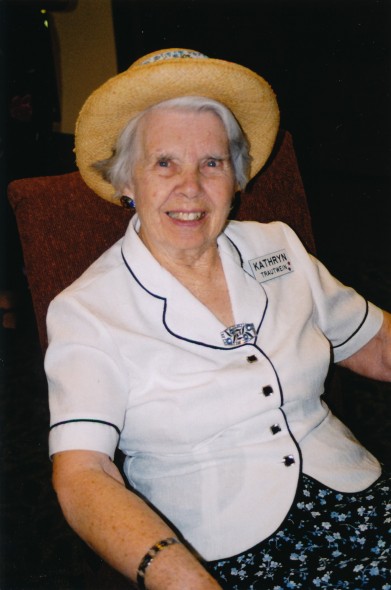Beautiful Mom, about 1948.
For most of my life, my mother was my best friend. As she began to leave us, almost a decade ago now, the inexorable blade of dementia sliced her memory into ever smaller pieces. During these years of decline, I often wondered how I would endure, who I would become without her richly textured presence in my life. What I witnessed was remarkable: the very essence of who she was became ever more finely distilled, until only a small but brilliant shard of light remained. Slowly, I began to understand — it was enough. Even though I no longer had access to all the pieces of my mother, the stories and memories I had come to know over the decades, what I did have was lovely. In truth, it was a strange and beautiful gift. Not a gift that either of us would have chosen, but a gift nonetheless.
Not every dementia story unfolds the way my mother’s did, a truth which makes me grateful on multiple levels for this particular and exquisite experience. For the last five years, I have wandered through grief, shed copious tears, railed at God for the cruelty of this growing epidemic in our land and across the world. I have also fallen to my knees in gratitude for the shining core of her, that glorious flame that blazed up and out and into the core of every single person she encountered. As the limits of her world grew larger and darker, as she lost the desire to eat, to drink, to walk — even then, she found a smile, a sweet word of gratitude, an exclamation of complimentary joy. “You look so beautiful today!” she would say. “Thank you so much for your help.” Not one other syllable made sense toward the end, but those words of kindness remained.
Ruth was born in Duncan, a small logging town on Vancouver Island in British Columbia, Canada, the second child and first-born daughter of Harry and Elsie Hobson. They gave her a long, cumbersome name, which included the names of some female relatives who eventually left mom two small diamonds. She gave those to me — and I managed to lose them both. Mom’s full name was Edith Lemody Ruth Hobson and she was a beautiful baby. They called her Ruthie.
Two years later, the Hobsons gathered up their little family and boarded a train, with siblings and cousins, and emigrated to southern California. Two little boys, my little mom, a second daughter ‘in the oven,’ two parents, three maiden aunts, a cousin or two, and an elderly grandfather arrived in 1923 and settled into a variety of Los Angeles neighborhoods. Mom rode the street car, roller-skated or walked all over what is now Hollywood and graduated from Hollywood High School in 1938. She went to UCLA for two years, and then quit when her family ran out of money; she always regretted never finishing her college career.
Mom’s father was a difficult man, and her mother worked. My mom became a surrogate mom to her siblings and found safe harbor in a local Methodist church. She met my dad there and they married in 1941 when mom was 20. I was born four years later, while they lived in San Diego. My dad taught math and physics at a military academy in that town during WWII — he was deemed entirely too spindly to join the army. In 1947, my brother Tom was born in a tiny town in central California where dad had an in-between teaching job while he waited for an opening at Los Angeles City College. When that job opened, we moved back to Los Angeles and bought our first house — a small, post-war tract home in North Hollywood. I was four years old.
All four of us attended that old Methodist church in downtown LA for the next eight years. I loved that place. My dad was the pianist, my mom sang in the choir, my brother and I went to Sunday School. It was at Trinity Methodist that I began to love choral singing — at the tender age of six. My mom made lifelong friends in that community and was the last one left from the old gang when she died last Wednesday afternoon.
Everywhere we lived, everywhere we worshipped, my mother made friends. Fast friends. I described her to the caregivers where she lived as, “The most flaming extrovert I have ever known.” Her gregarious and compassionate nature made her an excellent neighbor, an even better friend. In the earliest days of her dementia, I discovered that she regularly purchased small boxes of candy to take to her neighbors, to let them know she was thinking about them, to tell them they were loved.
In 1955, when I was almost 11 and Tom was almost 9, our youngest brother Ken was born. One month later, we moved across town to a different valley, from San Fernando to San Gabriel, buying an English Tudor style home in Glendale, CA. I endured (and enjoyed) adolescence in that home, learned to drive on the curvy hills of Forest Lawn Memorial Park, and drove off to UCLA at the age of 17. Wanting to get my youngest brother into what they thought was a better school district, my parents moved to north Glendale while I was in college. That house was never my home in the same way that the previous two had been. I married a year later, graduated six months after that, and then my husband and I sailed off for two years of living and working in Africa.
While they lived in Glendale, my parents were active members of Glendale Presbyterian Church. Each of them served on Session, my mom on at least one pastoral search committee. They thoroughly enjoyed the Sunday school teaching of Paul Jewett, then a theology professor at nearby Fuller Seminary. My mother read widely, with a lively sense of curiosity and a commitment to growing in her faith. She read everything ever written by C.S. Lewis, Catherine Marshall, and Paul Tillich along with a long list of fiction writers. She instilled her love of language, reading, writing and beauty into the core of me at a very young age.
She was also a ton of fun. She had an earthy sense of humor, loved to laugh, introduced us kids to British humor early on (anyone remember the “Carry On” movies??), and threw grand parties. She also decorated our homes on very little money, made most of my clothes and baked great birthday cakes. One of my daughters said to me last week, “One of my strongest memories of Momma was that she was always, ALWAYS, so happy to see me.” And that was real — she took delight in her family. De-light. Yes, she worried about us (especially Ken, whose life was difficult at many points and who died eight years ago.) But she loved us all and we knew it. Deep down, we knew we were loved. It was like oxygen — something that surrounded us always, something that gave us energy and life.
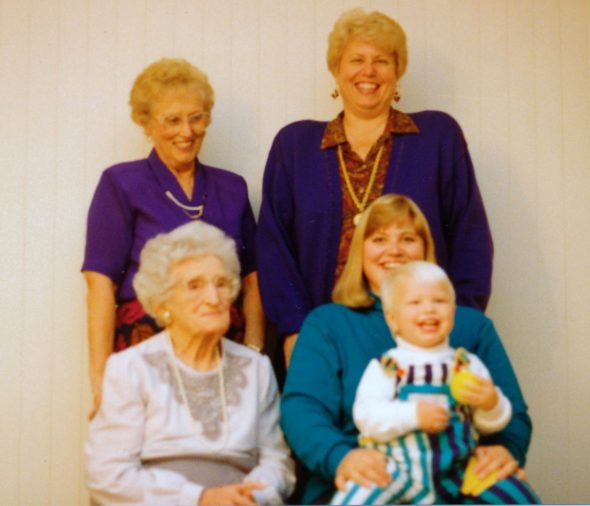
Five generations – from lower left – Elsie Hobson, Ruth Gold, Diana Trautwein,
Lisa Fischinger, Ben Fischinger — taken in Orange County, 1991
My parents worked hard to create a good home for the three of us. There was one salary in our home, and that one a teacher’s salary, so we didn’t do fancy things. But we listened to all kinds of music on my dad’s home-built hi-fi set (or from his fingers at the keyboard), we camped all over California, and we enjoyed extended family gatherings on both sides, especially gatherings at some of the beaches along the southern California coast.
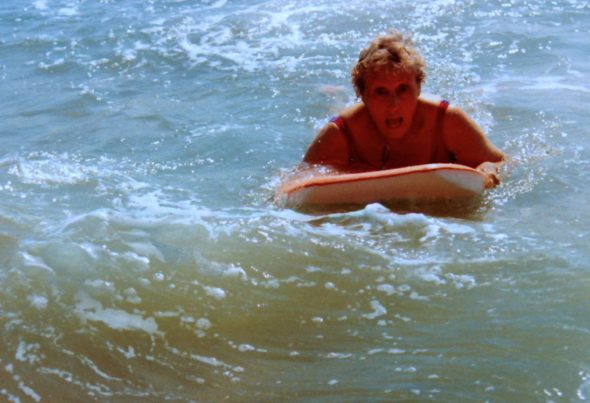
Mom, doing what she loved more than almost anything else: boogey-boarding, Huntington Beach,
sometime in the 1980s, I think. She would have been in her early 60s.
Toward the end of his career as a professor and administrator at the junior college level, my dad had some serious health issues that required them to move out of the valley and closer to the sea. They lived in Oceanside for two years, then settled into a lovely town home in Mission Viejo, in Orange County. They loved that community and lived there for about fifteen years. In 2002, we moved them to a retirement community in LaVerne CA. My father died two and a half years later in February of 2005. My mom lived there independently until 2012, when Alzheimer’s put her into assisted living. The next year, we moved her to The Samarkand dementia unit, just ten minutes from our home here in Santa Barbara.
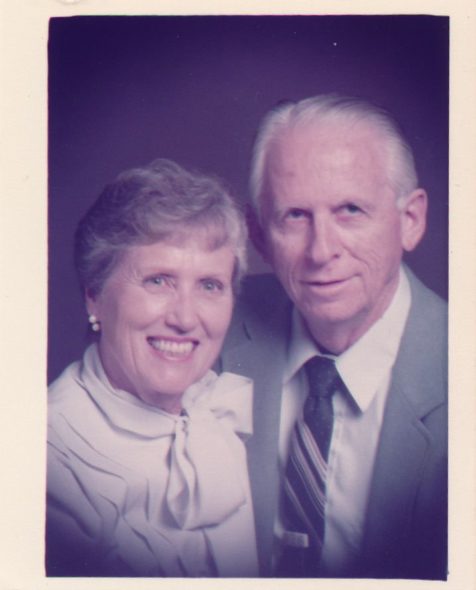
My parents, when they lived in Orange County
While they were in Orange County, I took the train south once each month for a long midweek visit. After they moved to LaVerne, I drove south monthly, then twice monthly, and stayed with our daughter, who lived about 30 minutes from there. All of those visits were an attempt to be as present as I could be with the two of them, and then with my mom, while their bodies breathed earth’s air.
Those bodies of theirs were holy to me, often in ways I didn’t fully understand. They had birthed me, loved me, tended me when mildly wounded or critically ill, clothed me, fed me and gave me away to my husband. (Yes, that is an outdated term, one that I no longer use, but it’s the truth of my lived experience in that season of my life.) I was with my father three days before his death, praying the blessing of Aaron over his unconscious, frail frame, telling him how much I loved him and how grateful I was for his care for me. When my brother called to tell me he had died, I asked that his body remain in the room until I could get there. Our bodies are supremely important collections of cosmic dust; they bear the image of an invisible God, they carry our stories, our selves. I wanted to honor him by honoring what remained.
Last week, I had the privilege of doing the same thing for my mama. Her journey took eight days, and every one of those days, I was by her side. Most of the time, I sat in front of a window, using only natural light. I put Pandora onto a hymn station and played it for hours. I finished a large crochet project. I called for more meds, as needed. I got up and blessed her face, stroked her shoulders. I ate the lunches I packed, I took occasional walks. I thanked every one of the Hospice team who came and cared for her so lovingly. One woman offered sponge baths, one offered quiet company, another brought her guitar and sang. The nurses were supremely skilled and compassionate, as were the caregivers at the facility. My pastor came twice, my friend Sherry, Samarkand chaplain for over twenty years, came daily.
Room 62 became holy ground during those long days.
At 4:32 p.m. on Wednesday, Sherry and I stood beside her and my friend said, “Look! Her eyes are open!” Those eyes had been closed for most of the previous five days. Her breathing was quite labored at this point, but as her eyes flew open, the noise stopped. She gasped twice and looked right into my eyes as I blessed her, thanked her, loved her. And she flew. I mean she flew to Jesus in those moments. I had been visualizing my father, my brother, her siblings, her parents and so many of her friends all around that room for days. And I do believe that in that moment, she saw them. And she was not afraid.
All those dear ones welcomed her home — with love, joy and laughter. This I know, in the deepest part of me, this I know.
We will bury her on Tuesday morning, dropping her earthly remains into the grave plot she will share with my dad. We will hold a special service of worship to celebrate her life on May 20th at 2:00 p.m. in The Chapel at the Samarkand, the place that she called, ‘my church.’
Over and around the fatigue that I feel at this end of the journey, the strongest emotion in my heart is gratitude. It absolutely overwhelms me at some moments. There is sadness, yes, there is sadness. But over and around and in between everything else, there is thanksgiving. For 95 years, she graced this earth, 72 of them with me in the center of that grace.
Thank you, Mama. And thank you, God.
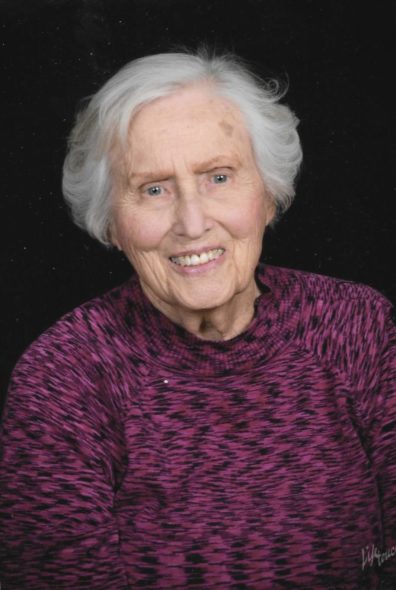
November, 2015, last formal portrait
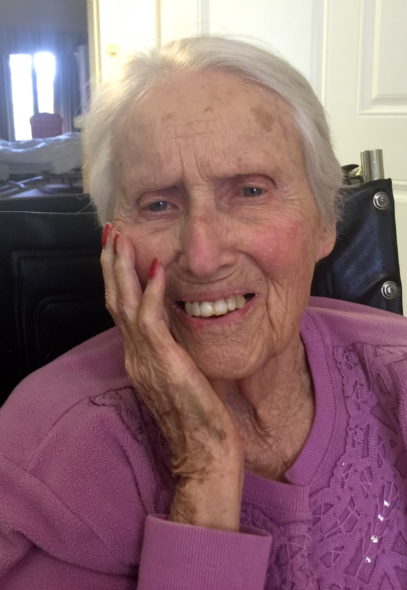
April 7, 2017

